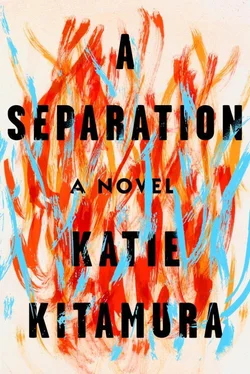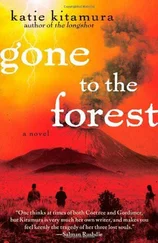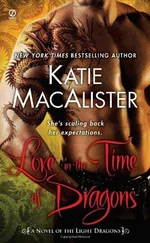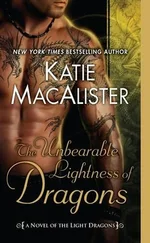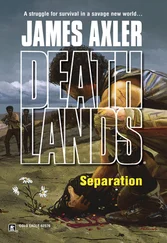Of course, by morning, these ideas are absurd, and the conjectures that seemed plausible enough by night fall apart. In daylight, I can admit that my imagination was only seeking drama in what was, what has always been, a transparent death. When someone you love dies an unnatural death it is natural to look for a larger narrative, a greater significance, the shock of the event seems to require it. But in the end this is only chasing shadows. The real culpability is not to be found in the dark or with a stranger, but in ourselves. Of all the suspects—scattered among disparate bodies, existing in separate narratives—no one had more motive than I did. I had motive, several motives in fact—a huge sum of money to gain, a philandering and careless husband who had, at least according to appearances, all but abandoned me, another man I wished to marry. The motives had coalesced around me, a mantle manifested by my guilt—the guilt of the living, for which it is impossible to atone.
And yet it appeared to be a matter of indifference to everybody else. We sold the apartment about eighteen months after Christopher’s death—I did not want to live there, and Mark and Isabella thought this much the best course—and shortly after, I purchased a house in the same neighborhood, a fifteen-minute walk from where Christopher and I had lived. Yvan and I are now engaged, and we live in this house, which is too large for us, but which we say we will grow into, perhaps, if we have children, or at least a child. The money Christopher left to me—I still believe inadvertently—sits untouched, something that I think Yvan understands, although I do not know if he thinks this will change with time, in a matter of a year, perhaps two.
I cannot be certain it will change, or even if the relationship with Yvan will last, not out of any reluctance on my part, but on his. Something about the terms of the contract—the agreement that we entered into, unwritten and unspoken but no less binding—have changed, he finds himself living with, and also now engaged to, not a woman newly divorced, but a woman who has lost her husband, and who continues, while trying to conceal it from him, to grieve this loss. Sometimes, lying in bed beside Yvan, I remember being in Greece with Isabella and Mark and worrying that they would spot the rift of my pretense, the artifice of my widow’s grief.
But there was less difference than I thought, between the grief that I experienced and what I thought of as the legitimate grief of a legitimate wife—the grief that I attempted, while with Isabella and Mark and then before the world in general, to emulate. The emulation became the thing itself, in the end there was not that much difference between the grief of a wife and the grief of an ex-wife—perhaps wife and husband and marriage itself are only words that conceal much more unstable realities, more turbulent than can be contained in a handful of syllables, or any amount of writing.
They say that there are five stages of grief, that things get worse before they get better, and in the end time does indeed heal all wounds. But what about the wounds you do not know you do not know about, and the course of which you cannot predict? I know that one thing is certain: if Christopher were still alive, I would now be married to Yvan. There would be no regular visits to see Isabella and Mark, no meetings about the setting up of a foundation in Christopher’s name (despite her misgivings, Isabella decided that in the end she would like to see a foundation established), no prospective publication of Christopher’s second and final book.
There would not be this, or the many e-mails and telephone calls relating to this. There would be no sleepless nights, no reservoir of emotion both unexamined and unknown, which only gathers and grows, a black and nameless pool that petrifies me, on the precipice of which I seem to lie, and of which I speak to no one. Against which my relationship with Yvan—the current relationship, the one that matters, whose details are entirely sunlit, in fact too well lit for my taste, it hurts to look at them, there is nothing I cannot see—is forced to contend.
Sometimes Yvan jokes that it is rotten luck that Christopher was killed and I have to agree, it is terrible luck, for all involved. Yvan said only last week that he did not know how much longer he could wait. And although I could have said, For what?—after all, wasn’t I here, in his home, in his bed, and weren’t we engaged—I knew exactly what he meant, and I could only say that I was sorry, and that I agreed—although what we were waiting for, what exactly it was, neither of us could say.
ACKNOWLEDGMENTS

Thank you, Ellen Levine, Laura Perciasepe, Jynne Dilling Martin, Claire McGinnis; Clare Conville, Geoff Mulligan, Anna-Marie Fitzgerald. To those who read and responded to early drafts of this book: Karl Ove Knausgaard, Meghan O’Rourke. Finally, thank you to my first and best reader, Hari Kunzru.
This book was written with the support of the Lannan Foundation and OMI International Arts Center. I am also grateful to Ian Seiter, Stephanie Skaff, and the Hertog Fellowship Program at Hunter College.
Gone to the Forest
The Longshot

What’s next on your reading list?
Discover your next great read!
Get personalized book picks and up-to-date news about this author.
Sign up now.

RIVERHEAD BOOKS
An imprint of Penguin Random House LLC
375 Hudson Street
New York, New York 10014

Copyright © 2017 by Katie Kitamura
Penguin supports copyright. Copyright fuels creativity, encourages diverse voices, promotes free speech, and creates a vibrant culture. Thank you for buying an authorized edition of this book and for complying with copyright laws by not reproducing, scanning, or distributing any part of it in any form without permission. You are supporting writers and allowing Penguin to continue to publish books for every reader.
Ebook ISBN: 9780399576126
Library of Congress Cataloging-in-Publication Data
Names: Kitamura, Katie M., author.
Title: A separation : a novel / Katie Kitamura.
Description: New York: Riverhead Books, 2017.
Identifiers: LCCN 2016026580 | ISBN 9780399576102 (hardcover)
Subjects: LCSH: Married women—Fiction. | Marital conflict—Fiction. | Adultery—Fiction. | Psychological fiction. | BISAC: FICTION / Literary. | FICTION / Psychological. | FICTION / Family Life.
Classification: LCC PS3611.I877 S47 2017 | DDC 813/.6—dc23
LC record available at https://lccn.loc.gov/2016026580
p. cm.
International edition ISBN: 9780735216655
This is a work of fiction. Names, characters, places, and incidents either are the product of the author’s imagination or are used fictitiously, and any resemblance to actual persons, living or dead, businesses, companies, events, or locales is entirely coincidental.
Version_1
